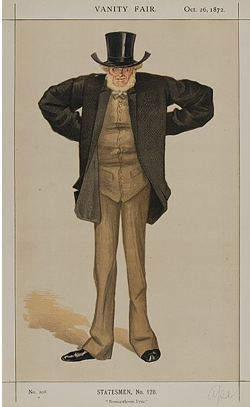
Classified Newcastle
I want to take you back to 1864, a hundred and fifty-odd years ago, when the "toon" was a seething cauldron of prosperity, and Ned Corvan was playing at the Grainger Hotel Concert Hall:
This comes courtesy of the British Newspaper Archive, who have available on the web lots of Tyneside newspapers, including The Newcastle Daily Chronicle of Friday December 9th, from which this has been extracted. Corvan was by then a highly successful performer and songwriter, still knocking 'em dead only a year before his death at the age of only 35. Annie James was currently nationally known, and Corvan regularly supported travelling temporary "“superstars", who he often outshone, due to the support of local fans.
Newspapers in those days had the front page devoted entirely to adverts, including this one. The rest of the page sheds a fascinating light on Newcastle at the height of Victorian England, and the rest of this article deals with this. For instance, "Brass Door and Window plates can be engraved by A Reid of Printing Court Buildings" in The Side, or you can get patent roofing felt at one penny a square foot from D. Anderson & sons in Pilgrim Street. Or you can get Colman's Prize-Medal Mustard, Starch, and "No. 1 INDIGO BLUE" providing you went to Cannon Street in London. Closer to home, you could get artificial teeth from A. Lowe, "Surgeon Dentist" of Blackett Street or a "New Winter Costume" from George Foreman of the Newcastle Mourning Warehouse in Grey Street, featuring a "Choice Selection of Embroidered and Mourning Mantles, Jackets, etc.". You could get a sausage machine from Ross, Detchon & Co of Queen Street Buildings, gas fittings from J C Hallidays of west Clayton street, also “thousands of cures” from Downies Life Preserving Pills of Sandhill. Going further afield on the front page you buy umbrellas and leggings from J. Corbett and underclothing for both ladies and gentlemen from the same source. Or Donnell’s Hair Cutting and comb and brush establishment at 10, Mosley Street will also sell you Dentine at 1s 6d to cure tooth-ache.
You could also obtain a fire clay retort from the up and coming Joseph Cowen of Blaydon Burn. Joseph Cowen was a local lad, being born in Greenside in 1800, first being an apprentice blacksmith, later becoming a colliery owner and director of a shipping company. Within a year he would be elected Liberal MP for Newcastle (his predecessor was educated at Shrewsbury and Trinity College, Cambridge, and came from Somerset-it was the time of rotten boroughs!). Cowen, by then living at Stella Hall in Blaydon, made great progress as a national politician, being knighted a year before his death in 1873. He was succeeded by his son as an MP and manufacturer also called Joseph, who presided over the most well-known product, the "Blaydon Brick", nowadays celebrated by the Firebrick Brewery in two of their beers, "Blaydon Brick" and "Stella Spark".
I got this idea from a series of programmes by Jim Naughtie called Classified Britain where he looked at old newspapers from many parts of the British Isles, including the Newcastle Courant of October 1842 (https://www.bbc.co.uk/programmes/b0b1r93l2). The beginning of the programme mentioned 420 dozen smoked ox tongues which had just arrived from Archangel and the adverts for tenants of the following pubs: The Yellow Doors, the Tiger, The Cross Keys, and the Black Bull. These inns no longer exist, but the Half Moon does, where "two handsome greyhounds" were auctioned in 1842. Imagine that happening today! The programme also included the "Lit & Phil" and the "Diorama", then a modern successor to the magic lantern shows of a bygone era. It then listed some of the local newspapers with their political leanings. (There were an amazing number of newspapers in Newcastle in the middle of the nineteenth century.) The BBC picked the Courant, maybe because it had "no party politics", whereas the Standard was radical, the Journal was "provincial and conservative", and the Chronicle took the liberal middle class view. In the programme, Newcastle was described as "on the up" and "a great industrial city". The last item described the Dental School in the days before anaesthetics, where you could get all of your healthy teeth removed to be replaced by a "Waterloo set" of teeth taken from corpses on either side of the battle!
Considering Corvan died of tuberculosis in August 1865, he was very active in the winter appearing in South Shields, North Shields, and the George Hotel in Newcastle in the weeks leading up to Christmas, all reported in local papers.
If this article strays too far from singing songs, let me know.
Pete Wood
pwood49@outlook.com
788 wds
A caricature of
sir Joseph Cowell
